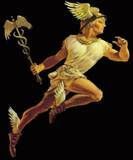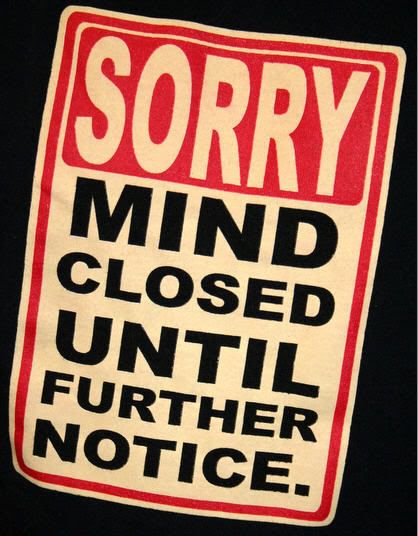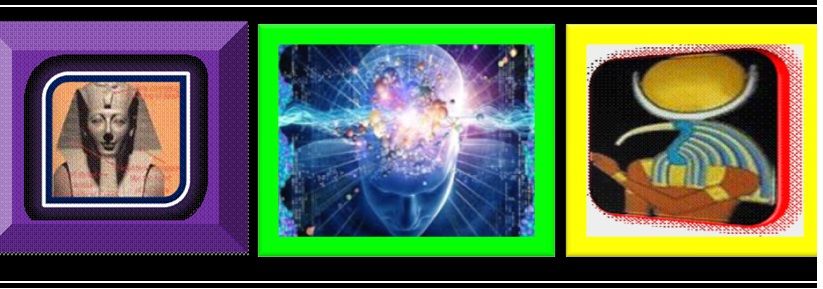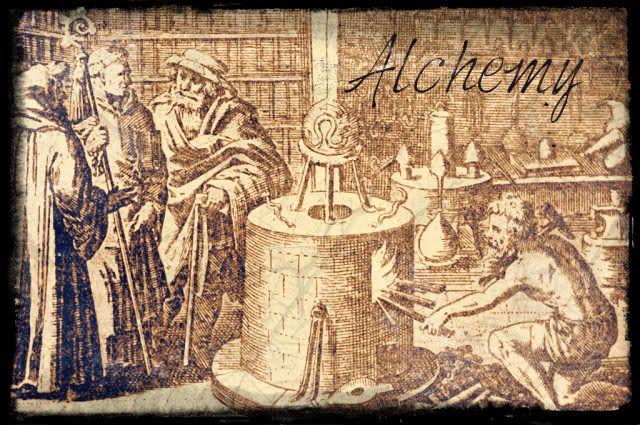Alchemy - Sacred Secrets Revealed
From mattqatsi YouTube channel
In Alchemy - Sacred Secrets Revealed we take an in-depth look at this most Sacred Science, what are some of the myths, and how it relates to consciousness and spirituality. Alchemy has been shrouded in mystery and kept out of new adepts hands by secret societies, hermetic and fraternal orders for centuries.
Part 2
Gnosis - The Great Work of Alchemy
From YouTube EnlighteningChannel
Quick glossary
Hermeticism
Hermeticism, also called Hermetism, is a religious and philosophical tradition based primarily upon writings attributed to Hermes Trismegistus ("Thrice Great"). These writings have greatly influenced the Western esoteric tradition and were considered to be of great importance during both the Renaissance and the Reformation. The tradition claims descent from a prisca theologia, a doctrine which affirms that a single, true theology exists which is present in all religions and was given by God to man in antiquity.
 |
| Greek God Hermes |
Hermetica (including Corpus Hermeticum)
The Hermetica are Egyptian-Greek wisdom texts from the 2nd and 3rd centuries CE, which are mostly presented as dialogues in which a teacher, generally identified as Hermes Trismegistus ("thrice-greatest Hermes"), enlightens a disciple. The texts form the basis of Hermeticism. They discuss the divine, the cosmos, mind, and nature. Some touch upon alchemy, astrology, and related concepts.
Alchemy
Alchemy is an influential tradition whose practitioners have, from antiquity, claimed it to be the precursor to profound powers. The defining objectives of alchemy are varied but historically have typically included one or more of the following goals: the creation of the fabled philosopher's stone; the ability to transmute base metals into the noble metals (gold or silver); and development of an elixir of life, which would confer youth and longevity.
Hermes Trismegistus
Hermes Trismegistus ("thrice-greatest Hermes"; Latin: Mercurius ter Maximus) is the purported author of the Hermetic Corpus, a series of sacred texts that are the basis of Hermeticism.
Hermeticism and Alchemy
Alchemy is one of three areas of wisdom within Hermeticism (along with Astrology and Theurgy). The misused concept of Medieval Alchemists as having “turned lead into gold” has become a type of quick belittling stereotype. Even Wikipedia plays that angle, or someone like the physicist Michio Kaku who admits that "the noble pursuit of science has humble origins" based on the quick and intellectually lazy perception of "lead to gold"... despite clear evidence to the contrary!
Just for the record, it has been demonstrated that lead can literally be turned into gold; however, it far too expensive and time consuming to be practical. In reality, this concept was merely an allegory for the transformation of the spirit; the “Alchemical marriage” (“Philosopher’s Stone”) in which the sacred feminine and the sacred masculine in all of us can be united in spirit. The spiritual unity of this ever-present “duality” as the perfect spiritual union of the soul; achieving pure balance and harmony.
Allegoric “lead to gold” (from the above video)
In Alchemy, we have a very sacred science for bringing the lead of an undeveloped consciousness up to the level of a fully developed consciousness of gold. Magnificent and incorruptable.
Alchemical marriage
When you make the two into one, and make the outer like the inner. and the inner like the outer, and the upper like the lower, and when you make the male and the female a single one. Than you may enter. --From the lost gospel of Thomas
Quick facts and observations
Alchemy apparently is mostly drawn from ancient Egyptian culture and
 spirituality, and as they had later contact with the ancient Greeks. The larger spiritual tradition of Hermeticism arose later within Greek culture; named after the author of the ‘Hermetic Corpus’ Hermes Trismegistus, who himself was named or nicknamed after the Greek god Hermes.
spirituality, and as they had later contact with the ancient Greeks. The larger spiritual tradition of Hermeticism arose later within Greek culture; named after the author of the ‘Hermetic Corpus’ Hermes Trismegistus, who himself was named or nicknamed after the Greek god Hermes.A list of historical Alchemists shows that this spiritual tradition spread as far as China, India, and the Islamic world, and certainly throughout Europe during the Middle Ages. Famous Alchemists range from Pythagorus to Fibonacci and Giordano Bruno to Isaac Newton and Carl Jung. I don’t know about Islam, which at times was very open to new scientific ideas, but Alchemists were persecuted by the Church in Europe. Giordano Bruno was literally burned to death for the crime of stating that the stars in the sky may each be individual “suns.”
Alchemy recognizes a complex “Tree of Life,” which is present in many spiritual traditions. I think the Tree of Life from the Hebrew Kabbalah has an Alchemical origin; however, It think that other traditions mostly developed on their own. In Alchemy, we are not humans having a spiritual experience, but spirits having a human experience.
I wonder if certain spiritual concepts which I recognized, originated from the pre-Olympian Greek/European pagan traditions? For example, the concept of “as above, so below,” or the Alchemical concept of a male Sun god and female Moon goddess (red king and white queen, Sol and Luna), and the recognition of “the five elements” (Earth, Air, Fire, Water, and Spirit).
The ancient drug DMT was used in ancient Egypt as a method of opening up the “Third Eye,” which is the pineal gland at the base of the brain. David Wilcock referred to the pineal gland as our “built in stargate.”
Terence McKenna
Hermeticism & Alchemy (Terence McKenna)
From Deus Ex McKenna ~ Terence McKenna Archive YouTube channel and recorded during a 1992 Workshop in New York.
WOW! Just.... WOW! --DisplayName, YouTube user
I thought that the first hour or so of this lecture was dynamite. Then he started showing signs of his own flirtation with part of mainstream politics and quirks revolving around drug use. However, I think that if many dogmatic, despotic, mind-is-made-up, judgement-before-fact Atheists and Christians were forced to intellectualize about the information in the first hour, they were have much to answer for.
Lecture transcript (an excellent reference)
http://alchemicalarchives.blogspot.com/
"The Earth is round" in the 2nd century?
“Would were it possible for you to grow wings and soar into the air, poised between earth and heaven, you may see the solid earth, the fluid sea, the streaming rivers, the wandering air, the penetrating fire, the courses of the stars and the swiftness with the movement heaven encompasses all. What happiness were that my son, to see all these born along with one impulse and to behold him who is unmoved, moving in all that moves, and him who is hidden, made manifest through his works.” --From the 'Hermetic Corpus' (Book of 'Asclepius')
Highly poetic celebration of nature without sin, rings with confidence joy. Glories in the exercise of the mind, not doctrinal, not pietistic, magical, expansive." --Terence McKenna
Alchemy and Superstition
People think that the further back in time, the more superstitious people are, but this isn’t the case. 10-12th century were periods of piety and intellectual cohesion. They stamped out paganism. That stuff came in the 16th century. Alchemy, conjuration, talismanic magic, sympathetic magic, all of this flourished not as throwback but as a prelude to modern science. --Terence McKenna
Terence McKenna
Terence Kemp McKenna (November 16, 1946 – April 3, 2000) was an American philosopher, psychonaut, ethnobotanist, lecturer, and author. He spoke and wrote about a variety of subjects, including psychedelic drugs, plant-based entheogens, shamanism, metaphysics, alchemy, language, culture, technology, and the theoretical origins of human consciousness.
Exposing the elusive "shame on you, MY mind is already made up" Atheist mindset
One comment under the YouTube video 'Findings of Unusual Human Remains' by YouTube user WachdByBigBrother, gave a pretty good account of the rush-to-judgement that many people have when presented with anything which refuses the mainstream view:
"No other theories allowed." There may be resistance. In the end, as the evidence overwhelm the skeptics, the theory is backed. Continental drift is a classic example. Rock types, their ages, the same matching layers and their magnetic fields matched all the way across the ocean. The outline of the fissures on the bottom of the ocean. Sensitive measuring equipment that can measure the speed of the subsidence etc. All that took time to collect. Sometimes new technology was needed. In fact, scientists and laymen resist change. That doesn't win in the long run.
Same with archeology. Amazingly, measuring isotopes in the teeth can narrow exactly where the person grew up. This helped greatly in locating where the ice man came from and where he travelled.
 And genetics has located Neanderthal DNA in a small percentage of the population. Even tracking the dispersal of man can be done vs the dating of findings and it's DNA.
And genetics has located Neanderthal DNA in a small percentage of the population. Even tracking the dispersal of man can be done vs the dating of findings and it's DNA.Heck, other scientists resisted the discovery that 80% of ulcers are caused by a bacteria. He was derided for years. Truth and victory won in the end. He infected himself so he got very sick then cured himself. He won the Nobel Prize for medicine while bitter competitors and detractors claimed they ignored the discovery for so long because the Nobel Prize winner was an obnoxious person. I think we can pretty much surmise that the scientist became more and more adamant since what he had discovered was important beyond the others' pettiness. The information won in the end despite human foibles.
Same thing is happening with the new discoveries of Europeans in the Americas. There's all sorts of racist knee jerking. Some political based I'm sure. In the end, facts will sort all that out in the end same as before. Interestingly, American Indians have some of that european DNA in their blood so, amazingly, the two groups, entering on each side of the continent ended up meeting and mixing.
"There is a principle which is a bar against all information, which is proof against all argument, and which cannot fail to keep man in everlasting ignorance. That principle is condemnation before investigation." --Edmund Spencer
.




No comments:
Post a Comment